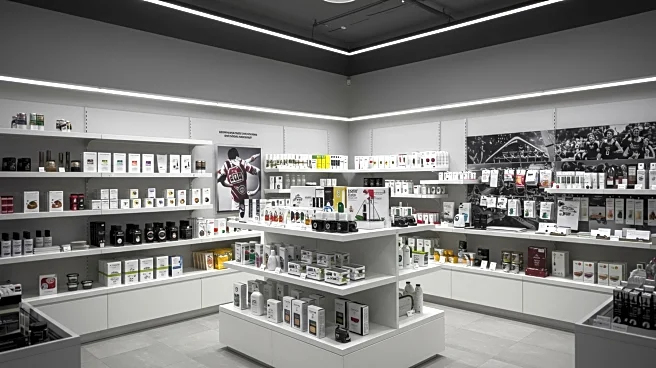What is the story about?
What's Happening?
Major retailers have shared insights on consumer behavior and the impact of tariffs during recent conference calls following their quarterly results. Companies like Target and Walmart have noted that American consumers are increasingly value-conscious, often opting for budget-friendly alternatives and pulling back on discretionary spending. Despite inflation and the looming threat of tariffs, home improvement retailers such as Home Depot and Lowe's have reported an increase in large purchases, particularly appliances. However, consumers remain cautious about financing larger home improvement projects. Retailers are strategically managing tariff costs, with some like Walmart and Estée Lauder even lowering prices to remain competitive. La-Z-Boy and Coty have highlighted potential advantages from domestic production, which could mitigate tariff impacts.
Why It's Important?
The insights from major retailers underscore the delicate balance companies must maintain in pricing strategies amid economic pressures like tariffs and inflation. As consumers prioritize value, retailers face the challenge of adjusting prices without alienating customers. The cautious approach to financing larger purchases reflects broader economic concerns, potentially affecting sectors reliant on consumer spending. Companies with domestic production, like La-Z-Boy, may benefit from reduced tariff exposure, offering a competitive edge. These dynamics could influence corporate strategies, consumer behavior, and economic trends in the U.S., impacting retail sales and manufacturing sectors.
What's Next?
Retailers are likely to continue monitoring consumer spending patterns and adjust their pricing strategies accordingly. As tariffs potentially increase costs, companies may explore further domestic production to mitigate impacts. The ongoing economic environment may prompt retailers to offer more promotions and discounts to attract budget-conscious consumers. Additionally, the cautious approach to financing larger purchases may persist, affecting home improvement and related industries. Stakeholders will be watching for any shifts in consumer confidence and spending habits as economic conditions evolve.
Beyond the Headlines
The broader implications of tariff impacts and consumer behavior may extend to supply chain strategies and international trade relations. Companies reshoring production could influence employment and manufacturing trends in the U.S. The focus on value and budget-friendly options may drive innovation in product offerings and marketing strategies. Retailers' responses to economic pressures could set precedents for future pricing and production decisions, shaping the competitive landscape in the retail industry.















